MIE Faculty
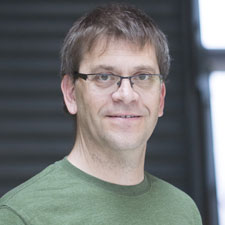
PhD, LEL
Professor, Industrial Engineering
Associate Chair of Undergraduate Studies
Email: gruninger@mie.utoronto.ca
Tel: 416-946-8853
Office: BA8122
Research Group: Semantic Technologies Laboratory
Research Area
Information Engineering
Research Interests
Ontologies; semantic integration; process modelling; enterprise integration; semantic web; knowledge representation; mathematical logic.
Bio
Michael Grüninger is a Professor at the University of Toronto. He returned to Canada after spending five years as an Assistant Research Scientist in the Institute for Systems Research at the University of Maryland College Park and also a Guest Researcher at the National Institute for Standards and Technology (NIST).
Before that, Michael was a Senior Research Scientist in the Enterprise Integration Laboratory of the Department of Mechanical and Industrial Engineering at the University of Toronto. Michael received his Ph.D. and M.Sc. in Computer Science at the University of Toronto and his B.Sc. in Computer Science at the University of Alberta.
His current research focuses on the design and formal characterization of theories in mathematical logic and their application to problems in manufacturing and enterprise engineering. His most recent work on the Process Specification Language has been published as an International Standard (ISO 18629).

PhD
Professor, Mechanical Engineering
Email: guenther@mie.utoronto.ca
Tel: 416-978-1282
Office: MC416
Research Group: Guenther Lab – Fluidic Microprocessors for Life & Material Sciences
Research Area
Thermofluids
Research Interests
Fluid flow and transport at small length scales; organized soft materials; microsystems design; micro and nanofabrication; fluidic microprocessors; high-throughput screening; small blood vessel structure and function.
Bio
The Guenther Research Group draws from the areas of fluid mechanics, colloidal material synthesis, as well as micro/nanofabrication. We investigate fundamentals of transport processes associated with micro/nanoscale flows and aim at translating these fundamentals into unique and powerful technical solutions. We are particularly interested in realizing dynamically changing microenvironments for applications in materials science and biomedicine. Current applications include the controlled preparation of colloidal nanostructures in microreactors, high-throughput platforms for functional tests of small blood vessels with relevance to biopharmaceutical drug discovery, and microfluidic strategies for probing cellular decision processes.
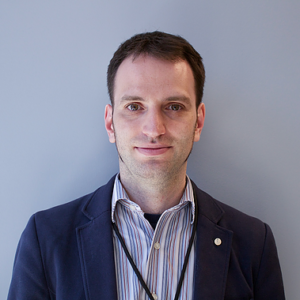
MSc
Assistant Professor, Teaching Stream, Industrial Engineering
Email: michael.guerzhoy@utoronto.ca
Tel: 416-978-7024
Office: BA 2028
Research Areas
Applied Machine Learning
Research Interests
Machine learning; data science for healthcare; pedagogy of introductory programming; pedagogy of data science and machine learning.
Bio
Michael Guerzhoy is an Assistant Professor, Teaching Stream in the Division of Engineering Science and the Department of Mechanical and Industrial Engineering and an Affiliate Scientist at the Li Ka Shing Knowledge Institute at St. Michael’s Hospital. Michaels’s research interests are in data science, the applications of data science in healthcare, and the pedagogy of introductory programming, data science, and machine learning. Michael was the recipient of the Best Paper Award at the Canadian Conference on Artificial Intelligence in 2014.

PhD, P.Eng.
Professor, Industrial Engineering
Associate Chair, Professional Programs (MEng)
Email: jamieson@mie.utoronto.ca
Tel: 416-946-8504
Office: RS306A
Research Group: Cognitive Engineering Laboratory (CEL)
Research Area
Human Factors
Research Interests
Human interaction with automation; analysis of work in complex systems; design of interfaces; cognitive engineering applications in process control; energy systems; other emerging areas.
Bio
Greg A. Jamieson is a Professor in the Department of Mechanical & Industrial Engineering at the University of Toronto. He received a Bachelor of Science degrees in Mechanical Engineering and Psychology (with Distinction) from the University of Illinois at Urbana-Champaign, and the Masters of Applied Science and Doctor of Philosophy degrees in Human Factors Engineering from the University of Toronto. From 2018-2023 he was the Clarice Chalmers Chair of Engineering Design at the University of Toronto. He directs the Cognitive Engineering Laboratory, which conducts applied human factors engineering research in the natural resource and energy industries.
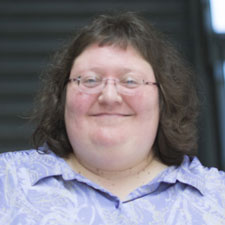
ScD, P.Eng.
Professor, Mechanical Engineering
Email: kesler@mie.utoronto.ca
Tel: 416-978-3835
Office: MC332
Research Group: Fuel Cell Materials and Manufacturing Lab
Research Area
Materials
Research Interests
Solid oxide fuel cells; fuel cell materials and manufacturing; graded and multi-layered materials; plasma spray and sol gel processing; increasing reliability; durability and decreasing cost of clean energy conversion technologies.
Bio
Olivera Kesler joined the University of Toronto in 2007 and initiated the Fuel Cell Materials and Manufacturing Laboratory, FCMML. The goal of all of the research work in FCMML is to enhance environmental sustainability by developing cleaner energy conversion technologies that reduce air pollution and greenhouse gas emissions compared to combustion-based power generation methods. Research projects are conceived with the goal of tackling the largest challenges preventing the widespread use of fuel cell technologies – cost, durability, and reliability. The ultimate objective of the work is to facilitate the widest and fastest possible adoption of cleaner energy conversion technologies in order to maximize their environmental benefit.
The main focus of the research in FCMML is on solid oxide fuel cell (SOFC) technology. SOFCs are the most efficient known energy conversion device for the production of electricity from a variety of fuels, including renewable biomass, hydrogen, or natural gas, with no smog-forming emissions. However, their use remains severely limited by high costs, as well as by low durability and reliability. Current projects are aimed at drastically lowering the cost and improving the durability of fuel cells through the use of new materials and processing techniques to produce fuel cells more rapidly using a process that is easily scaleable for mass production. Work is also focused on understanding the electrochemical performance and degradation behaviour of SOFCs, in order to develop strategies to increase their durability.
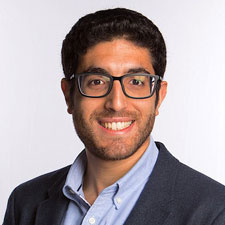
PhD
Assistant Professor, Industrial Engineering
SCALE AI Research Chair in Data-Driven Algorithms for Modern Supply Chains
Email: khalil@mie.utoronto.ca
Tel: 416-978-4025
Office: BA8110
Research Areas
Operations Research
Applied Machine Learning
Research Interests
Machine learning, integer programming, algorithm design, learning to optimize, combinatorial machine learning
Bio
Elias Khalil is joining the Department of Mechanical & Industrial Engineering as Assistant Professor starting July 2020. Elias is spending the year as IVADO Postdoctoral Scholar at Polytechnique Montréal. He obtained his PhD in Computational Science and Engineering from Georgia Tech (2019), a MS in Computer Science from Georgia Tech (2014), and a BS in Computer Science from the American University of Beirut (2012). His research interests are in Artificial Intelligence with a focus on machine learning and discrete optimization. He is the recipient of an IBM Ph.D. Fellowship (2016-2017), the First Prize in the poster competition at INFORMS (2017) and the Best Paper Award at the NIPS Workshop on Frontiers of Network Analysis (2013). He has interned at IBM Research and Symantec Research Labs.
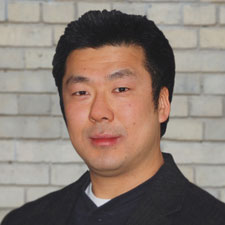
PhD, LEL
Professor, Industrial Engineering
Email: rkwon@mie.utoronto.ca
Tel: 416-978-3274
Office: MC320
Research Group: Financial Optimization and Risk Management (FORM) Laboratory
Research Area
Operations Research
Research Interests
Mathematical optimization and its applications in logistics; supply-chain Management; financial engineering (asset allocation, option pricing); smart material design
Bio
Roy H. Kwon is a professor in the Department of Mechanical & Industrial Engineering at the University of Toronto, St. George Campus. Also, he is a member of the faculty in the Masters of Mathematical Finance (MMF) Program at U of T.
He received his PhD from the University of Pennsylvania in operations research from the Department of Electrical and Systems Engineering in 2002. His research focuses on financial engineering (portfolio optimization, asset allocation, risk management, and option pricing) and supply chain management (logistics and production control).
Dr. Kwon has published articles in such journals as Management Science, Naval Research Logistics, the European Journal of Operational Research, and Operations Research Letters, among others. In addition, he has worked and consulted in the use of operations research (optimization) for the military, financial, and service sectors.

PhD, B.Math, B.B.A
Assistant Professor, Teaching Stream, Industrial Engineering
Email: janet@mie.utoronto.ca
Tel: 416-978-2890
Office: MC306A
Research Areas
Operations Research
Engineering Education
Research Interests
Physical asset management; reliability and maintenance; student motivation and identity; teaching in higher education
Bio
Janet Lam is an Assistant Professor, Teaching Stream in operations research with the Department of Mechanical and Industrial Engineering.
She has been working in the field of maintenance optimization since 2008, with an emphasis on optimal scheduling of inspections for condition-based maintenance.
Janet served as a research associate at the Centre for Maintenance Optimization and Reliability Engineering (C-MORE) applying academic research directly with industry partners, including those in mining, utilities, transportation, and the military. Janet has a track record of cultivating strong relationships with industry partners and developing maintenance engineering resources that are both useful and current.
She is also a respected engineering educator with more than 10 years of teaching undergraduate, graduate, and professional students. She was a Teaching Specialist for first year engineering students at Michigan State University from 2016 to 2017. She is a Fellow of the National Effective Teaching Institute and a Runner-Up Best Upper Year Instructor in the Skule Student Choice awards 2020-2021.
Janet received her Ph.D. in Industrial Engineering at the University of Toronto, her B.Math in Operations Research at the University of Waterloo and her B.B.A. from Wilfrid Laurier University.
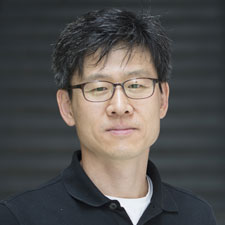
PhD, P.Eng.
Professor, Industrial Engineering
Email: cglee@mie.utoronto.ca
Tel: 416-946-7867
Office: MC322
Research Group: Dynamic Optimization & Operations Management Laboratory
Research Areas
Operations Research
Applied Machine Learning
Research Interests
Various logistics problems; sequential decision making theories; financial theories applied in manufacturing and service sectors; market-driven conflict resolution; optimal pricing; marketing; information system control and design.
Bio
Chi-Guhn Lee is a professor in the Department of Mechanical and Industrial Engineering at the University of Toronto. He received his Ph.D. in the area of Industrial & Operations Engineering from the University of Michigan, Ann Arbor, and joined the University of Toronto faculty in 2001. Prior to his Ph.D. studies, he spent over three years at Samsung SDS in Seoul, Korea, leading a project of re-usable OOP library for fast prototyping of system integration software. Professor Lee has done both theoretical and applied research in dynamic optimization under uncertainty. His theoretical works involve accelerated value iteration algorithm for Markov decision processes, progressive basis-function approximation for value function space, multi-variate Bayesian control chart optimization, and optimal learning using Multi-armed Bandit Model. His interest in application is diverse from supply chain optimization to financial engineering, to dynamic pricing and to healthcare optimization. In the past years, he and his team have actively adopted machine learning algorithms into their research portfolio. In particular, he is currently active in reinforcement learning, inverse reinforcement learning, and deep reinforcement learning.
Professor Lee holds positions as associate editor – Enterprise Information System and International Journal of Industrial Engineering – and serves as a member in a few editorial boards.
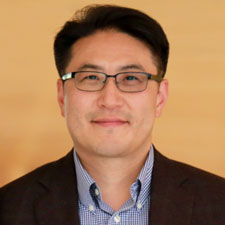
PhD
Associate Professor, Mechanical Engineering
Email: patricklee@mie.utoronto.ca
Tel: 416-946-5407
Office: MC311
Research Group: Multifunctional Composites Manufacturing Laboratory (MCML)
Research Areas
Materials
Thermofluids
Research Interests
Multiphase nano-structured lightweight and smart hybrid polymer foam materials; Micro-/nano-layer coextrusion foam manufacturing; fundamental understanding of foaming phenomena; computational modelling of foaming; super high R value foams; conductive foams; sound insulation foams.
Bio
Dr. Patrick Lee, PhD, PEng is an Associate Professor in the Department of Mechanical & Industrial Engineering (MIE) at the University of Toronto. He received his B.Sc. degree in Mechanical Engineering from the University of British Columbia, and then obtained his M.A.Sc. and Ph.D. in Mechanical Engineering from the University of Toronto in 2001 and 2006, respectively. Then he pursued Postdoctoral study in the Department of Chemical Engineering and Materials Science at the University of Minnesota. Dr. Lee began his professional career at The Dow Chemical Company in 2008. He was a Research Scientist and Project Leader in Dow’s Research and Development organization. Dr. Lee joined the Department of Mechanical Engineering at The University of Vermont as an assistant professor in 2014. Since joining UVM, he created his own research platform on the lightweight and smart composite structures. He joined the Department of Mechanical and Industrial Engineering at The University of Toronto starting July 1st, 2018.
Dr. Lee’s research areas focus on polymer foam processing and characterization, and processing-structure-property relationships of nano-composites. He has 61 journal papers, over 100 refereed conference abstracts/papers, 2 book chapters, and 20 filed/issued patent applications. He is the PI or co-PI on domestically and internationally awarded grants from various government agencies and industries. Among his honors, Dr. Lee received the G.H. Duggan Medal from Canadian Society for Mechanical Engineering (CSME) in 2020, the AKCSE Early Achievement Award in 2019, the US National Science Foundation Early Faculty Career Development Award (NSF CAREER) in 2018, the Polymer Processing Society (PPS) Morand Lambla award in 2018, the Hanwha Advanced Materials Non-Tenured Faculty Award in 2017, and 3 best paper awards from the Society of Plastics Engineer (2005, 2 in 2011).